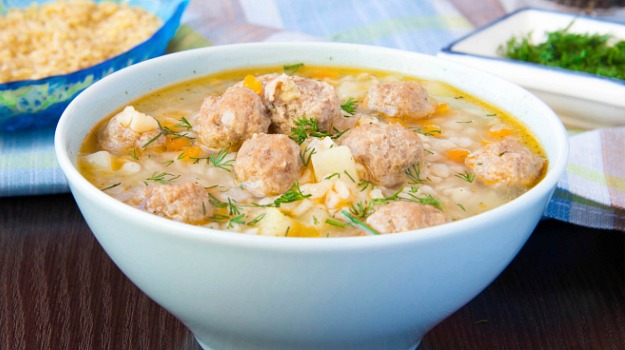Soup is often called a meal in a bowl; Various forms of cooking remove the essential nutrients from the vegetables, but soups retain most of the essential vitamins and minerals and makes a nourishing and a healthy meal.
Soups can be easily made at home; Depending on the number of people to be served and if any specific nutritional needs, the following healthy soups may be considered:
Tomato Soup: A homemade soup is much more fresher and nutritious than from artificial powdered soups and tinned soups. Tomato soup
provides lots of fibre and is also a source of Vitamin C.
Gazpacho: Native to Spain, it’s an extension to the regular tomato soup; It is usually made with tomatoes, bread crumbs, spring onions and other vegetables. It is a rich source of Vitamin C.
Lentils: Soups from lentils are very simple to make and are a good option for vegetarians. Lentil Soups provide lots of protein, Iron and fibre.
Chicken Soup: Chicken soup and broth have been used since ancient times. originally from China, Chicken soup is said to help clear a running nose. It contains proteins and also is asource of Vitamin B.
Minestrone: This soup comes from Italy and is made with lots of fresh vegetables. It is usually served with Pasta or Rice. It provides Proteins, Fibres and Vitamin C.
A number os easily digestible meals can be prepared by using a good homemade stock that is made with various combinations of pulses, grains, fish and vegetables. Homemade stock is made by boling meat, chicken or vegetables with spices and herbs. It is a slow cooking process which helps in concentrating the different flavors.
Soups come in various forms, but the most common are:
Tinned Soups : Tinning of Soups sterilises them so that they do not need preservatives. Most tinned soups contain salt, the quantity of which is usually displayed in the label. Tinned soups contain lesser amount of nutrients compared to homemade soups because they are usually cooked for a long time and then canned.
Dried Packet Soups (Powders): Soups that come in small sachets and packets usually have very few nutrients and more additives than tinned soups or home-made ones. Usually monosodium glutamate is used to enhance the flavor of foods, but due to consumer pressure the levels of monosodium as an additive are being reduced. The thickeners found in many commercial soups may be derived from wheat, therefore it is usually helpful if you check the lables before buying.
Carton Soups: These soups compare very well with homemade soups in freshness and quality. Carton soups are freshly prepared and pasteurized instead of being heated in a high temparature like tinned soups; Carton Soups are therefore are healthier compared to tinned and powdered versions. But some carton soups may be high in calories if milk or cream is added; So it is best to check the ingredients in the label.






